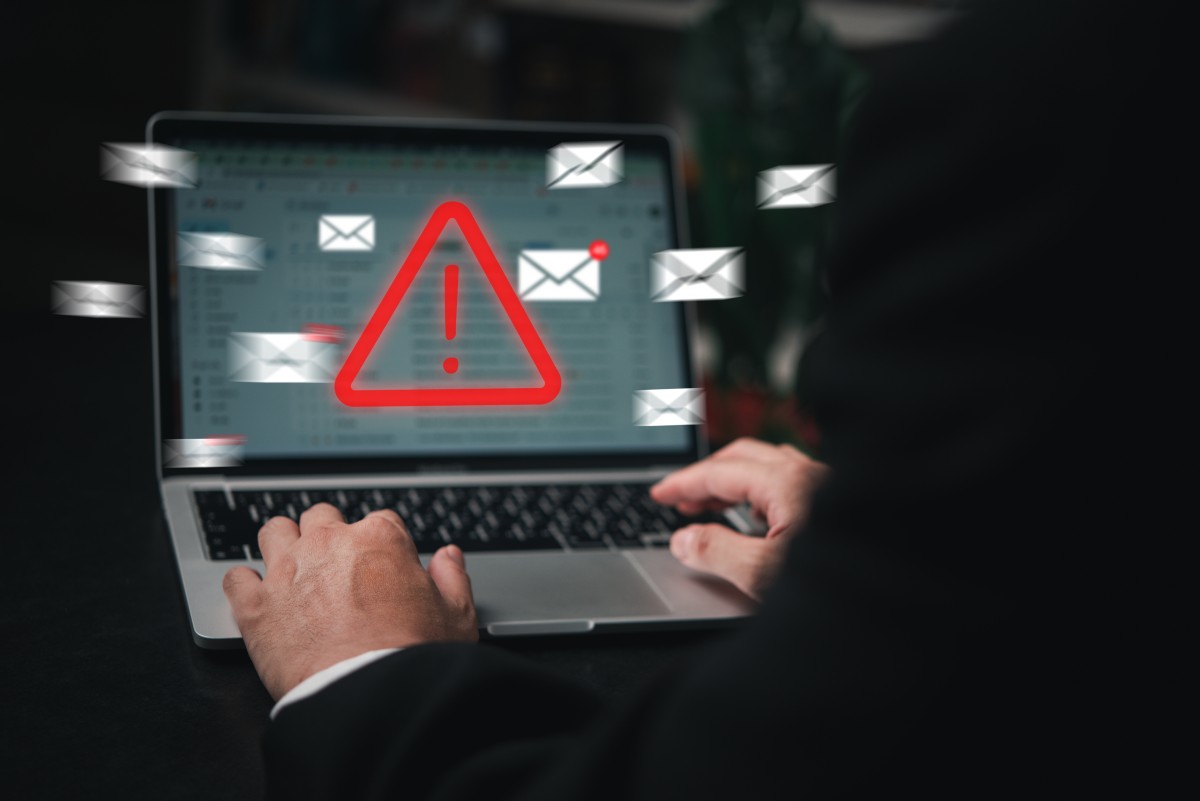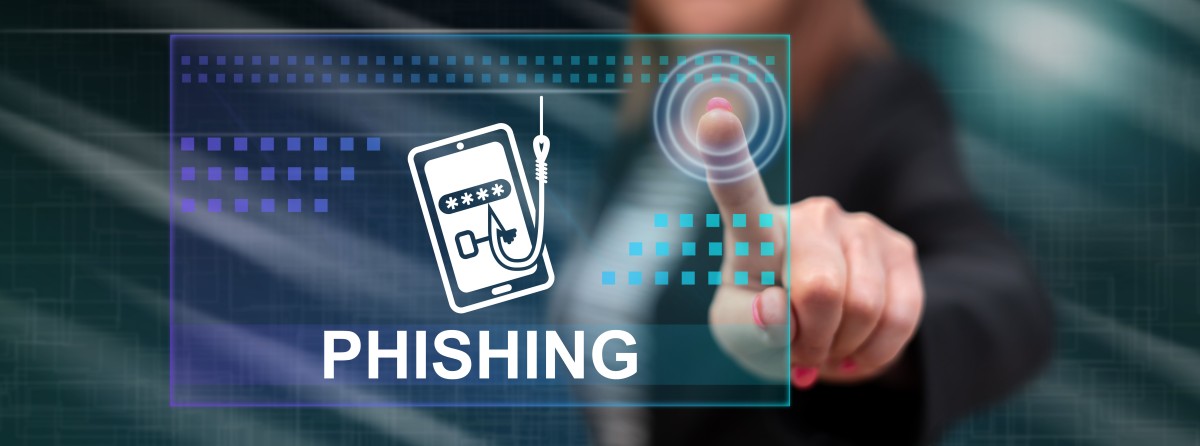Using Patient Education Videos to Support Preventive Care Strategies
As a healthcare provider, you know prevention saves lives. From routine screenings and lifestyle counseling to vaccinations and early detection,...
 Myths exist for a reason and they often have remarkable staying power. Often, they’re designed to explain the ordinary and build our confidence and faith in the way things are. The kernels of truth, and hope, that they hold keep us returning to them, often in the face of concrete information.
Myths exist for a reason and they often have remarkable staying power. Often, they’re designed to explain the ordinary and build our confidence and faith in the way things are. The kernels of truth, and hope, that they hold keep us returning to them, often in the face of concrete information.
In few places is this more true than healthcare email security. The security landscape is overwhelming. Threats are constantly evolving, thwarting even the best and biggest among us. However, when we confront myths, we are able to better understand that landscape, better able to adapt, and better able to face the challenges ahead of us. When it comes to healthcare email security, the only way to be better prepared to protect your practice and patient data is to understand the myths and work to improve your email security stance.
Quick Links:
Despite frequent conversations and, in some cases, deadly consequences, healthcare security threats continue to grow. Sadly, patient data is not only vulnerable but also valuable.
Data security, encompassing the protection of patient records, medical histories, and billing information, is just one critical aspect of healthcare security. The digitization of healthcare data has streamlined processes but also introduced new risks.
As a result of this digital transformation, healthcare databases are prime targets for cyberattacks, ranging from ransomware attacks that encrypt vital data until a ransom is paid to insider threats where employees misuse their access privileges. The consequences of a data breach extend beyond financial losses, encompassing patient distrust, regulatory fines, and damage to the organization's reputation.
One of the most pervasive threats stems from email security breaches. Healthcare organizations often rely heavily on email communication for sharing sensitive patient information, making them prime targets for increasingly sophisticated phishing attacks.
Cybercriminals exploit this vulnerability by crafting deceptive emails that mimic legitimate sources, tricking employees into revealing login credentials or downloading malicious attachments. Once breached, these emails can lead to unauthorized access to patient records, jeopardizing confidentiality and integrity. And, when we consider that a stunning amount, 88%, of healthcare workers have opened phishing emails, we may realize that the risk is far more real than we may suspect.
To mitigate these threats, healthcare organizations must prioritize comprehensive security measures, including both data and email security.
 The Role of Email Security in Healthcare Security
The Role of Email Security in Healthcare SecurityEmail security plays a pivotal role in safeguarding sensitive patient information. In fact, over 90% of healthcare cyber attacks begin with an email. Threats are not diminishing and so healthcare organizations and practices must take the necessary steps to protect themselves and patient data.
One of the most significant threats to healthcare security through email is the risk of data breaches and unauthorized access to confidential patient information. Without proper email security protocols in place, these data breaches can, again, result in severe consequences, including financial loss, reputational damage and regulatory penalties.
Effective email security encompasses various strategies and technologies aimed at protecting sensitive data from unauthorized access, interception, and malicious attacks. Encryption plays a critical role in ensuring that email communications remain confidential and cannot be accessed by unauthorized individuals. Additionally, email authentication mechanisms, such as SPF (Sender Policy Framework) and DKIM (DomainKeys Identified Mail), help verify the authenticity of email senders and prevent spoofing and phishing attacks.
Moreover, robust HIPAA compliant email security solutions often incorporate advanced threat detection capabilities, such as spam filters, malware scanners, and AI-driven anomaly detection systems. These tools help identify and mitigate potential security threats, including phishing emails, ransomware attacks, and email scams, before they can compromise sensitive data, disrupt healthcare operations, or even make it to your inbox.
Furthermore, employee training and awareness are critical components of email security. Healthcare staff should be educated about the risks of phishing and other email-based threats and trained to recognize suspicious emails. Regular security training can help prevent employees from falling victim to phishing attacks.
Healthcare security strategies that fail to include email are leaving a significant gap in their overall security stance. By implementing robust email security measures, healthcare organizations can mitigate the risk of data breaches, safeguard patient confidentiality, and uphold regulatory compliance standards, ultimately ensuring the integrity and trustworthiness of their email communications.
Email is, undoubtedly, an essential part of any business. There’s simply no avoiding it. And, while it’s certainly made communication easier, perhaps one of the biggest challenges we face when keeping email secure is that ubiquity.
Because we’re used to using email daily, and casually, because of the sheer volume of emails most healthcare practices receive, and because of either staffing concerns, poor training, or time limitations, email security concerns are, in many cases, brushed aside. Not only do we believe it’s safe because we’re exposed to it regularly, but there are a significant number of additional myths that need to be addressed.
Myth: Phishing scams are easy to detect.
Reality: Phishing scams have become incredibly sophisticated. From mimicking known partners and vendors to creating urgency that panics a recipient into acting, phishing can fool most people. In fact, 2023 saw a 167% increase in email attacks, including phishing, largely because they work.
Myth: Strong passwords are enough to secure email accounts.
Reality: Strong passwords are essential but not sufficient. In fact, credential stuffing and brute force attacks have been known to best what users believe are strong passwords. Other measures like two-factor authentication (2FA) and encryption are crucial for robust email security.
Myth: Healthcare emails don't contain sensitive information.
Reality: Even a casual email between a provider and patient may contain personal identifiers. Other healthcare emails may contain other highly sensitive patient information, including medical history or treatment plans. All of this makes them prime targets for cyberattacks.
Myth: Small healthcare practices are not targets for cyberattacks.
Reality: Small healthcare practices are increasingly targeted by cybercriminals due to their often inadequate security measures and valuable patient data. No organization is too small to be a target.
Myth: Anti-virus software will protect against email threats.
Reality: While anti-virus software is essential, it's not foolproof against sophisticated email threats like phishing and social engineering. A multi-layered security approach is necessary.
Myth: Secure email equals secure attachments.
Reality: Even if an email is secure, attachments can still contain malware or be malicious. Always verify the sender and exercise caution when opening attachments, regardless of the email's security status.
Myth: Email security is an IT department's responsibility.
Reality: Email security is a shared responsibility involving everyone in a healthcare organization, especially when there is no IT department. An IT team isn’t, typically, handling emails. Healthcare staff should be trained in email security, including recognizing and reporting suspicious emails.
Myth: Once an email is deleted, it's gone forever.
Reality: Deleted emails can often be recovered through data forensics or backups. Proper email retention policies and secure deletion practices are necessary to ensure sensitive information is permanently removed.
Myth: Free email services are as secure as enterprise-grade email solutions.
Reality: Free email services may lack the advanced security features and compliance measures required for handling sensitive healthcare information. Investing in a secure, enterprise-grade email solution is crucial for healthcare organizations.
Myth: Standard email security is HIPAA compliant.
Reality: One of the reasons public email servers are not HIPAA compliant is that, often, their security standards do not meet the stringent requirements HIPAA has set to ensure emails are protected. For example, HIPAA compliance requires a minimum of Advanced Encryption Standard (AES)128 for PHI at rest and Transport Layer Socket (TLS) for data in transit.
Myth: If my practice is HIPAA compliant, it’s safe to use third party email service providers.
Reality: Third party email service providers will require a Business Associate Agreement (BAA) if they are to be used in a healthcare setting.
Recognizing and dispelling these myths helps healthcare professionals better understand the importance of implementing robust email security measures to protect patient confidentiality and comply with regulations like HIPAA. The next step is to implement solutions that improve healthcare email security.
 How to Improve Healthcare Email Security
How to Improve Healthcare Email SecurityImproving healthcare email security is paramount to safeguarding sensitive patient information and maintaining compliance with regulations such as HIPAA . Email will, likely, remain a common communication tool in healthcare, making it vulnerable to breaches if not properly secured. Here are some key strategies to enhance healthcare email security:
1. Employee Training and Awareness- Education is crucial in ensuring healthcare staff understands the importance of secure email practices. Training should cover topics such as recognizing phishing attempts, creating strong passwords, and understanding the implications of mishandling sensitive data.
2. Implementing Secure Email Protocols- Healthcare organizations should utilize secure email protocols such as Transport Layer Security (TLS) to encrypt emails in transit. TLS ensures that emails are encrypted as they travel between servers, reducing the risk of interception by unauthorized parties.
3. Deploying Email Encryption Solutions- Investing in a secure, encrypted email solution specifically designed for healthcare environments is essential. These solutions offer end-to-end encryption, ensuring that emails and attachments are encrypted both in transit and at rest. Look for solutions that are HIPAA compliant and offer features such as recipient authentication and secure file sharing (without file size limitations!).
4. Enforcing Access Controls- Limiting access to sensitive patient information within email systems is crucial. Implement access controls that restrict who can send, receive, and access email accounts as well as certain types of information via email. Multi-factor Authentication (MFA) should also be employed to add an extra layer of security to email accounts.
5. Regular Security Audits and Updates- Conducting regular security audits helps identify vulnerabilities and ensure email systems are up-to-date with the latest security patches and configurations. It’s important to regularly review and update security policies and procedures to adapt to evolving threats and compliance requirements.
Implementing these strategies can help healthcare organizations significantly enhance their email security posture, mitigate the risk of data breaches, and maintain compliance with HIPAA regulations. Choosing a secure, encrypted email solution, like iCoreExchange from iCoreConnect, designed specifically for the unique needs of healthcare environments is key to protecting patient privacy and maintaining trust in the healthcare system.
If you’re ready to protect your inbox and stop unsolicited non-provider emails from getting in the door, reach out to our team today and let’s protect your practice, patient privacy, and ePHI. Book a demo today!

As a healthcare provider, you know prevention saves lives. From routine screenings and lifestyle counseling to vaccinations and early detection,...

There’s no denying that the AI boom is here. The American Medical Association reports that 66% of physicians are currently using artificial...

If only managing your practice’s revenue cycle came with a crystal ball. You could spot claim denials before they happen, predict when patients might...

If you knew several of your neighbors were victims of theft, from homes or cars in your neighborhood, you’d likely take initiative to safeguard your...

For many practices, email is a major security vulnerability. Unfortunately, cybercriminals are more aware of the opportunities to attack than...

You lock your office door at night. You secure your EHR system with passwords and user permissions. But what about your email? For many healthcare...